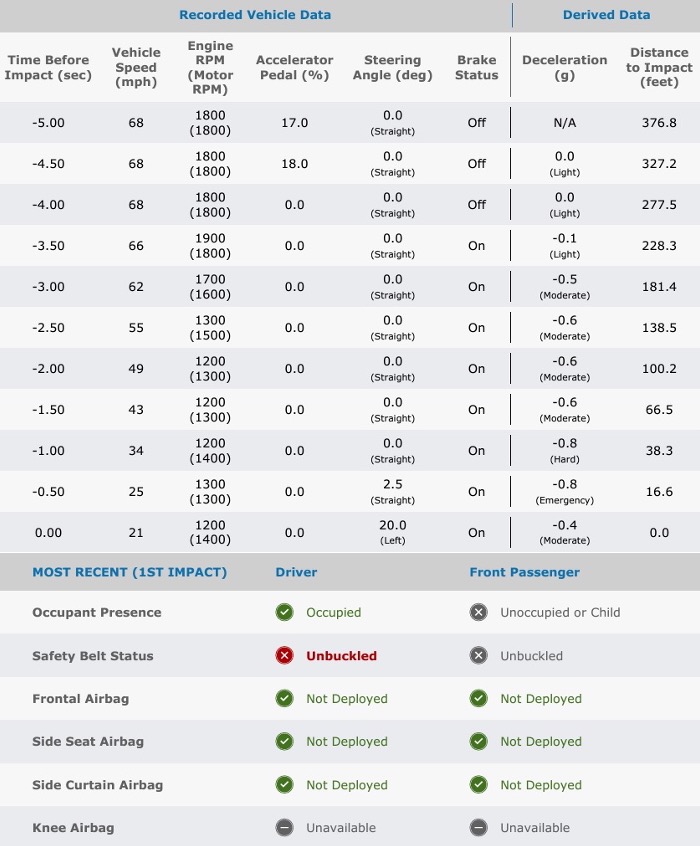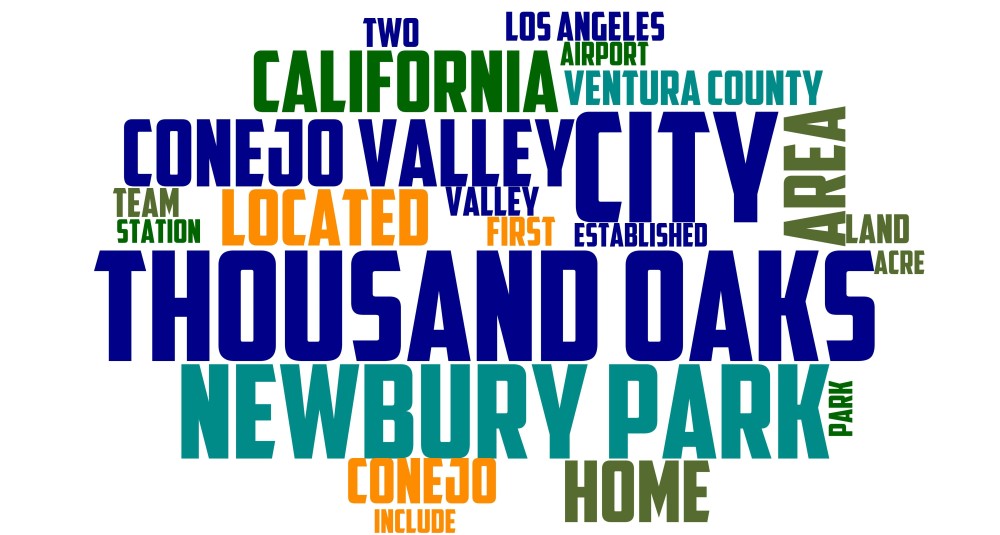
Crash Data Retrieval | Crenshaw Investigations
Crash Data Retrieval
Crenshaw Investigations specializes in Crash Data Retrieval (CDR), a forensic service that involves the extraction and interpretation of crash-related data from a vehicle’s Event Data Recorder (EDR). This process is essential in supporting accident investigations, legal cases, and insurance claims by providing clear, objective evidence about what occurred before, during, and after a crash.
Our trained experts use industry-standard technology and CDR tools to access this critical data, ensuring all findings are legally admissible, technically accurate, and professionally analyzed. Whether the goal is to establish liability, detect fraudulent claims, or clarify the sequence of events, our team delivers reliable insights grounded in science—not speculation.
What is Crash Data Retrieval?
Crash Data Retrieval (CDR) refers to the technical process of accessing and decoding crash-related information recorded in a vehicle’s onboard Event Data Recorder (EDR). This data is preserved automatically when a crash or near-crash event occurs and contains key details that help reconstruct the incident.
By analyzing this data, accident reconstruction specialists, attorneys, and insurance professionals can reach conclusions based on facts rather than assumptions—providing a strong foundation for legal decisions, insurance evaluations, and courtroom testimony.
What Data Can Be Retrieved?
A comprehensive CDR report typically includes the following data points:
- Vehicle speed and throttle application before impact
- Brake usage and timing
- Steering input and stability control activity
- Seatbelt status and airbag deployment
- Collision severity, force of impact, and event duration
- Time-stamped system data for full crash event reconstruction
This information is invaluable for painting a clear, verifiable picture of how an accident unfolded, helping to ensure fair resolutions and evidence-based conclusions.
How Crash Data Retrieval Assists
Attorneys:
Legal professionals leverage CDR data to strengthen liability claims, challenge false narratives, and support expert testimony in accident cases. The objective data extracted from a vehicle’s EDR forms a scientifically grounded foundation for building persuasive arguments in both civil and criminal litigation. Whether representing a plaintiff pursuing damages or a defendant facing unfounded allegations, attorneys use CDR reports to align case strategy with real-world crash dynamics, making it a critical tool in both court proceedings and settlement negotiations.
Insurance Companies:
Insurers rely on Crash Data Retrieval to validate accident claims, identify fraudulent activity, and assess liability with precision. Objective EDR data helps distinguish between legitimate and fabricated reports, reducing the risk of inflated or staged claims. By analyzing crash severity, impact timing, and driver input, adjusters can make informed decisions that promote efficient claims processing and equitable payouts. Leveraging CDR minimizes costly litigation and supports data-driven resolutions, safeguarding both company resources and policyholder trust.
Individuals:
For drivers and accident victims, CDR data can be a key asset in proving what actually occurred during a crash. It objectively records factors such as speed, braking, throttle input, and other driver behaviors in the moments leading up to impact. For those wrongfully accused or involved in disputed collisions, this data can serve as exonerating evidence, helping to refute false claims and clarify the true sequence of events. By providing clear, unbiased facts, Crash Data Retrieval helps ensure individuals are treated fairly in legal disputes and insurance evaluations.
Frequently Asked Questions
Can Crash Data Retrieval (CDR) be accessed remotely?
No. Crash Data Retrieval requires direct physical access to the vehicle and the use of specialized tools and software. The Event Data Recorder (EDR) stores data securely within the vehicle’s internal systems, making remote access impossible. Only qualified forensic professionals using manufacturer-approved equipment can properly extract and analyze this data.
Does CDR record conversations or video footage?
No. CDR systems do not record audio or video. Unlike dashcams or surveillance systems, EDRs are designed solely to capture crash-related vehicle metrics such as speed, braking, throttle input, and impact severity. This preserves driver and passenger privacy while focusing strictly on the technical details relevant to accident reconstruction.
Is CDR data admissible in court?
Yes. When properly retrieved and analyzed by qualified experts, CDR data is considered scientifically reliable and legally admissible evidence. It is commonly used in accident reconstructions, personal injury cases, and insurance disputes to objectively establish vehicle behavior and support or challenge liability claims.
Can CDR data be deleted or altered?
CDR data is stored in a tamper-resistant, secure format. Although newer crash events may overwrite older data once storage limits are reached, intentional deletion or alteration is extremely difficult without advanced and unauthorized tools. In many jurisdictions, tampering with EDR data is illegal, and forensic analysts can often detect such attempts through digital integrity checks.
Can CDR determine who was driving?
CDR data does not directly identify the driver, as it does not store personal or biometric information. However, it captures related indicators such as seatbelt usage, control inputs, and seat occupancy, which can provide circumstantial evidence. When paired with witness statements, surveillance footage, or forensic evidence, this information can help narrow down or support conclusions about driver identity.
Case Studies
Using CDR Data to Prevent Insurance Fraud
A driver filed a high-value insurance claim, alleging they were rear-ended at high speed, resulting in severe injuries and significant vehicle damage. However, our forensic analysis of the Crash Data Retrieval (CDR) report identified clear inconsistencies. The EDR system recorded no significant impact at the time of the alleged crash, and speed and braking data did not support the claimant’s narrative. Notably, the absence of any sudden braking behavior suggested the driver’s version was fabricated. This objective data enabled the insurance carrier to deny the fraudulent claim, saving tens of thousands of dollars and helping deter similar future attempts.
Legal Defense Supported by CDR Data
Our client was charged with reckless driving following a high-impact intersection collision. Witnesses alleged the driver was speeding and made no effort to stop. However, CDR data extracted from the vehicle contradicted those accounts, revealing the client was traveling within the posted speed limit and had applied the brakes in an attempt to avoid the crash. This forensic evidence, presented in court, provided a fact-based rebuttal to witness claims. The charges were ultimately dismissed, protecting our client from legal penalties, license suspension, and reputational harm.
CDR Data in Commercial Vehicle Accidents
A trucking company faced a multimillion-dollar lawsuit after a commercial vehicle collided with a passenger car. The claimant alleged the truck was speeding and failed to brake. Our CDR analysis told a different story: the truck was traveling within a safe speed range, the driver applied the brakes well before impact, and both stability control and anti-lock braking systems were engaged. This data was critical in proving the driver acted responsibly and the company was not at fault. The evidence helped avoid a costly settlement and preserved the company’s public and legal standing.
Why Choose Crenshaw Investigations?
At Crenshaw Investigations, we are dedicated to delivering professional, reliable Crash Data Retrieval services backed by forensic precision and legal credibility. Our team of experienced specialists brings deep expertise in crash analysis, legal consulting, and insurance investigations, ensuring that every report we produce is accurate, objective, and court-admissible.
Using industry-leading technology and proven methodologies, we extract, analyze, and interpret Event Data Recorder (EDR) information to create clear, fact-based reports that explain accident circumstances with confidence and clarity. Our ability to translate complex crash data into meaningful, actionable findings—along with our capability to provide expert witness testimony—has made us a trusted partner for attorneys, insurers, and individuals alike.
When you choose Crenshaw Investigations, you’re choosing a team that values integrity, thorough analysis, and client advocacy. Whether you are contesting a claim, preparing for litigation, or seeking clarity after a collision, we provide the expertise and forensic tools necessary to uncover the truth and support fair outcomes.
Need Expert Crash Data Retrieval Services?
Whether you’re an attorney, insurance professional, or individual involved in an accident, Crenshaw Investigations is here to help. Our certified CDR Experts are ready to collect, analyze, and interpret critical crash data to uncover the facts, support your case, and strengthen your position with scientifically backed evidence.
Contact us today to learn more about our Crash Data Retrieval services and how we can assist with your legal, insurance, or investigative needs.
Get Your Free eBook
“Revealing the Facts: The Role of EDR Data in Precise Accident Reconstruction and Fraud Detection”
In this downloadable resource, you’ll discover:
- The role and function of a vehicle’s Event Data Recorder (EDR)
- The forensic process of extracting and analyzing EDR data
- How EDR insights are used to identify false claims and support fraud prevention
Crenshaw Investigations offers professional investigations and services in the following areas of Los Angeles County:
Acton, Agoura, Agoura Hills, Agua Dulce, Alhambra, Alondra Park, Altadena, Antelope Valley, Arcadia, Arleta, Artesia, Athens, Atwater Village, Avalon, Avocado Heights, Azusa, Baldwin Hills, Baldwin Park, Bel Air, Bell, Bell Gardens, Bellflower, Beverly Crest, Beverly Grove, Beverly Hills, Beverlywood, Boyle Heights, Bradbury, Brentwood, Burbank, Calabasas, Canoga Park, Canyon Country, Carson, Castaic, Century City, Cerritos, Charter Oak, Chatsworth, Cheviot Hills, Chinatown, Citrus, Claremont, Commerce, Compton, Covina, Crescenta Valley, Cudahy, Culver City, Cypress Park, Del Aire, Del Rey, Diamond Bar, Downey, Downtown, Duarte, Eagle Rock, East Hollywood, East Los Angeles, East Pasadena, East Rancho Dominguez, East San Gabriel, East Whittier, Echo Park, El Monte, El Segundo, El Sereno, Encino, Exposition Park, Fairfax, Florence-Firestone, Florence-Graham, Franklin Canyon, Gardena, Glassell Park, Glendale, Glendora, Granada Hills, Hancock Park, Harbor City, Harbor Gateway, Hacienda Heights, Hawaiian Gardens, Hawthorne, Hermosa Beach, Hidden Hills, Highland Park, Hollywood, Hollywood Heights, Hollywood Hills, Huntington Park, Hyde Park, Industry, Inglewood, Irwindale, Jefferson Park, Koreatown, La Cañada Flintridge, La Crescenta, La Habra Heights, La Mirada, La Puente, La Verne, Ladera Heights, Lake Balboa, Lake Los Angeles, Lakeview Terrace, Lakewood, Lancaster, Lawndale, Leimert Park, Lennox, Leona Valley, Lincoln Heights, Littlerock, Lomita, Long Beach, Los Angeles, Los Feliz, Lynwood, Malibu, Manhattan Beach, Mar Vista, Marina del Rey, Mayflower Village, Maywood, Mid-City, Mid-Wilshire, Mission Hills, Monrovia, Montebello, Montecito Heights, Monterey Park, Montrose, Mount Olympus, Mount Washington, Newhall, North El Monte, North Hills, North Hollywood, Northridge, Norwalk, Pacific Palisades, Pacoima, Palmdale, Palms, Palos Verdes Estates, Panorama City, Paramount, Pasadena, Picfair Village, Pico Rivera, Playa del Rey, Playa Vista, Pomona, Pomona Valley, Porter Ranch, Quartz Hill, Rancho Palos Verdes, Rancho Park, Redondo Beach, Reseda, Rolling Hills, Rolling Hills Estates, Rosemead, Rowland Heights, San Dimas, San Fernando, San Fernando Valley, San Gabriel, San Gabriel Valley, San Marino, San Pasqual, San Pedro, Santa Clarita, Santa Clarita Valley, Santa Fe Springs, Santa Monica, Saugus, Sawtelle, Shadow Hills, Sherman Oaks, Sierra Madre, Signal Hill, Silver Lake, South El Monte, South Gate, South Los Angeles, South Pasadena, South San Gabriel, South San Jose Hills, South Whittier, Spaulding Square, Stevenson Ranch, Studio City, Sun Valley, Sunland, Sylmar, Tarzana, Temple City, Terminal Island, Topanga, Topanga Canyon, Torrance, Toluca Lake, Tujunga, University Park, Val Verde, Valencia, Valinda, Valley Glen, Valley Village, Van Nuys, Venice, Vernon, View Park-Windsor Hills, Vincent, Walnut, Walnut Park, Watts, West Adams, West Athens, West Carson, West Covina, West Hills, West Hollywood, West Los Angeles, West Puente Valley, West Rancho Dominguez, West Whittier-Los Nietos, Westchester, Westlake, Westlake Village, Westmont, Westwood, Whittier, Wilmington, Windsor Square, Winnetka, Woodland Hills, Willowbrook.
Crenshaw Investigations offers professional investigations and services in the following areas of Ventura County:
Bell Canyon, Camarillo, Casa Conejo, Channel Islands Beach, El Rio, Fillmore, Lake Sherwood, Meiners Oaks, Mira Monte, Moorpark, Newbury Park, Oak Park, Oak View, Ojai, Oxnard, Piru, Point Mugu, Port Hueneme, San Buenaventura, Santa Paula, Saticoy, Simi Valley, Somis, Thousand Oaks, Ventura.
We can be found under the following:
Private Investigator Los Angeles, Private Investigator In Los Angeles, Los Angeles Private Investigators, Private Investigator In LA, Private Investigator LA, Investigators In Los Angeles, Private Detective Los Angeles, LA Private Investigator, Private Investigation Firm In LA, Private Investigator Ventura, Private Investigator In Ventura, Ventura Private Investigators, Investigators In Ventura, Private Detective Ventura, Private Investigation Firm In Ventura, California Private Investigator, Private Investigator Near Me






